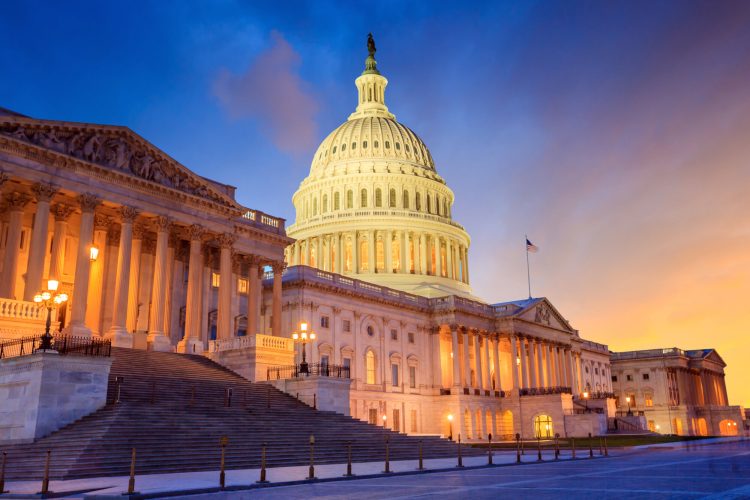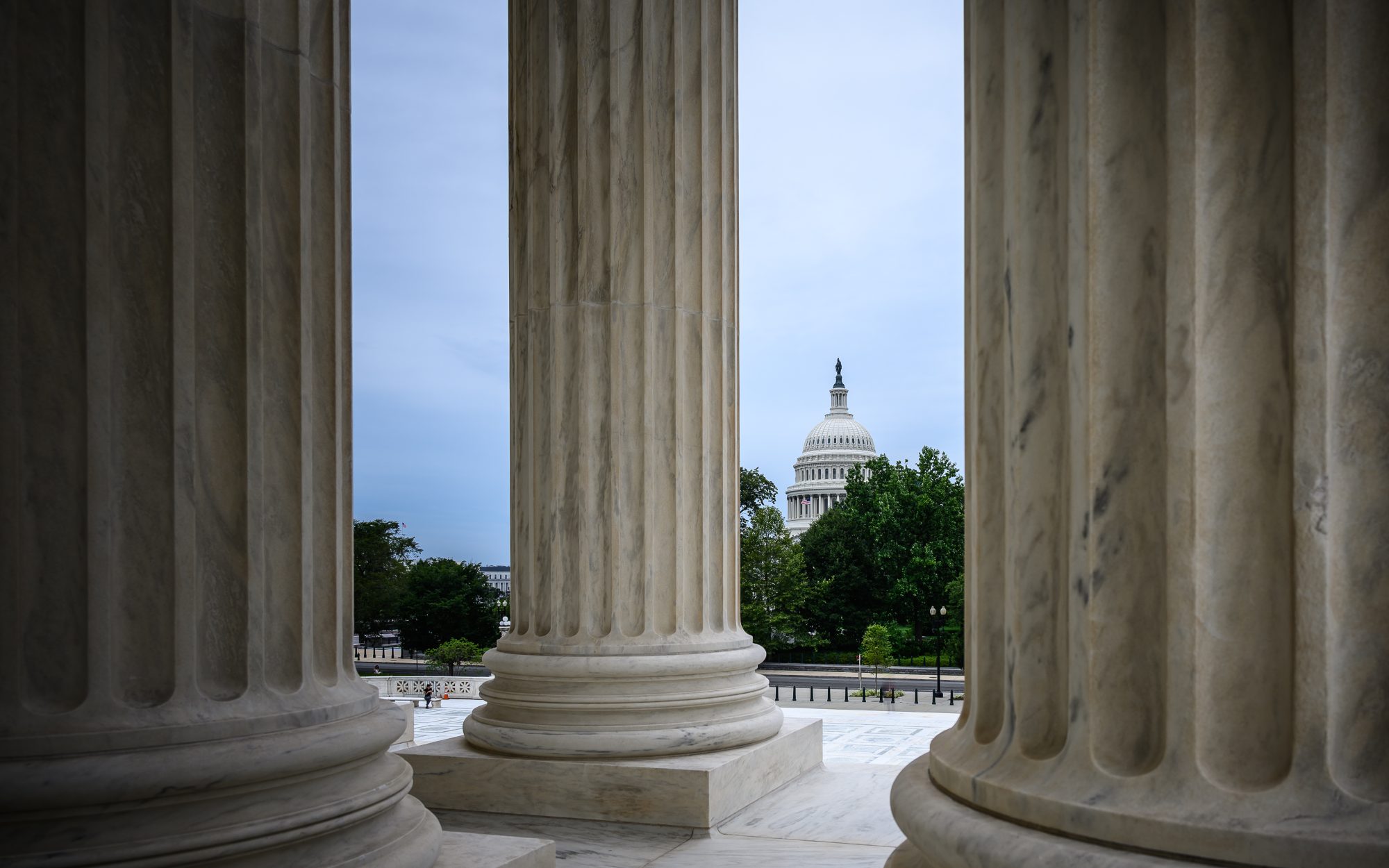This week on Facing the Future Ben Harris, Vice President and Director of Economic Studies at the Brookings Institution, joined host Bob Bixby to discuss his recently co-authored paper, “Assessing the Risks and Costs of the Rising U.S. Federal Debt.” Ben discussed his findings about the impacts of unsustainable national debt on annual income and standards of living for everyday Americans in light of upcoming congressional negotiations over a major spending and tax bill that could increase deficits by about $6 trillion over 10 years.
Harris and his colleagues found that “federal borrowing is unlikely to spark a fiscal crisis in the next few decades. Instead, increases in federal debt will manifest as a slow and steady erosion of our capital stock and national wealth that will ultimately impair living standards.”
Harris observed that, “Some people read this to say, ‘Well, you are saying there’s no problem with the debt,’ and that’s not what we were saying. We were saying, with virtual certainty, that future living standards will be lower than they would be otherwise if we don’t take care of this debt problem. To me, that does sound the alarm as loud as you possibly can. We’re talking about the fundamental well-being of Americans.”
To illustrate the cost of letting the debt rise, Harris compared future income per person in the U.S. under two scenarios; one where the debt to GDP ratio grows dramatically over the next 30 years, as in the baseline projections of the Congressional Budget Office (CBO), and the other where the debt-to-GDP ratio is stabilized where it is now.
“In the scenario where debt grows fairly sharply, income per person is about $6,000 per year lower relative to the scenario where we stabilize the debt,” Harris said. “To me that’s like a tax on the next generation for our inability to spend and raise revenues responsibly. So, this baseline case where the debt slowly erodes our standard of living is not one to be casual about. It’s meaningful in terms of the next generation.”
While the baseline scenario is bad enough, Harris is also concerned about the magnitude of the deficit increases that could result from the recently adopted congressional budget resolution. “The only time we should have a major bill that increases the deficit is in times of severe economic turmoil, like we saw in 2008 and 2009, and like we saw during Covid,” Harris said.
“We’ve got $3.8 trillion to pay for the extension of the Trump tax cuts. We’ve got another $1.5 trillion dollars in other tax cuts which haven’t yet been specified but will probably closely adhere to the President’s campaign proposals. And then another $500 billion in other spending for things like border security, homeland security, more military spending. So all in all, this is just a really expensive bill. I mean, this is $5.8 trillion before interest costs are taken into account and for ways that are probably not going to lead us to be a more attractive home for investment. So you’re just going to see more crowd-out, higher interest rates and poor kids down the line.”
Harris does not believe that Congress will agree on major offsets to mitigate the deficit impact of the tax cuts. “I think what you’re going to see,” he said, “is a lot of paper gains that don’t materialize in practice. You could see, for example, that they just can’t reach an agreement, so you could see them using imaginary gains, and in terms of how much revenue could be raised through tariffs through dynamic scoring, claiming these really big increases to the economy. And if Congress wants to ignore CBO scoring, it can use really anyone’s score if it wants to. So I think you could see paper gains masking over the problem and maybe getting to the point where you could even see the President claiming this reduced the deficit.”
Harris warned, however, that “financial markets are going to know better. The people who are controlling these $30 trillion in Treasury markets are very smart and they’re paying attention.” He noted that if financial markets are uncomfortable with what they see, regardless of the talking points, “you’re going to see some real economic pain.”
Already, there is concern that the U.S may be losing some of its attraction as a safe haven for investors in times of crisis. Harris said, “I think it’s something we should be very concerned about, and we should also ask precisely, why are we losing our shine as a safe haven. Is it because we think there’s now default risk that’s been introduced into Treasuries? Is it more of a politically strategic move where foreign central banks are selling off as far as retribution for these reciprocal tariffs. Is it just, in general, investors see better opportunities elsewhere? What, precisely, is driving the decreased demand for foreign investors purchasing Treasuries?”
He also noted concerns about the high cost of servicing the debt. “Because we have this $30 trillion stock of outstanding Treasuries, we’re increasingly vulnerable to higher interest rates, because we’re paying more and more interest relative to the size of the economy. So if you saw interest rates go up by a few percentage points, projections of 166 percent debt to GDP ratio 30 years out suddenly become much, much closer. They obviously exacerbate the problem because we have such a massive stock of debt.”
Hear more on Facing the Future. Concord Coalition Senior Advisor Bob Bixby hosts the program each week on WKXL in Concord N.H., and it is also available via podcast. Join us as The Concord Coalition team discusses issues relating to national fiscal policy with budget experts, industry leaders, and elected officials. Past broadcasts are available here. You can subscribe to the podcast on Spotify, Pandora, iTunes, Google Podcasts, Stitcher, or with an RSS feed. Follow Facing the Future on Facebook, and watch videos from past episodes on The Concord Coalition YouTube channel.
Continue Reading








